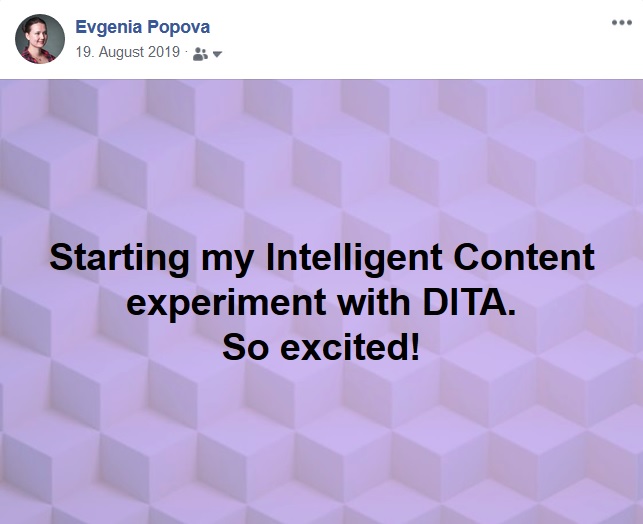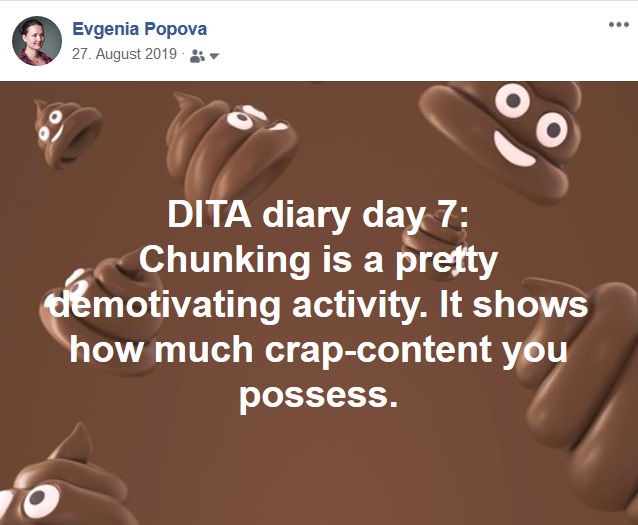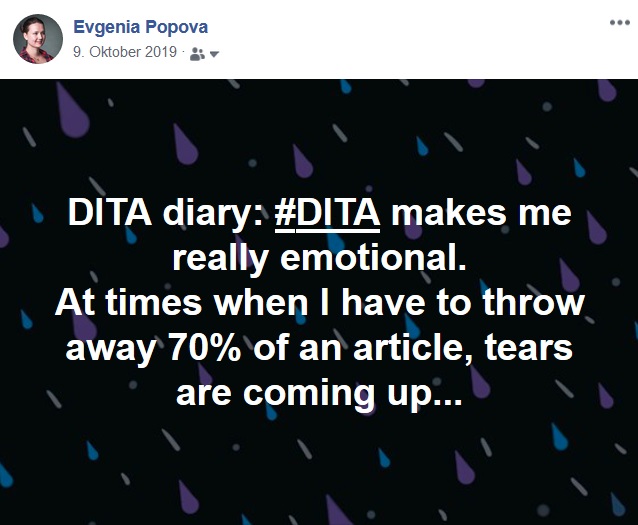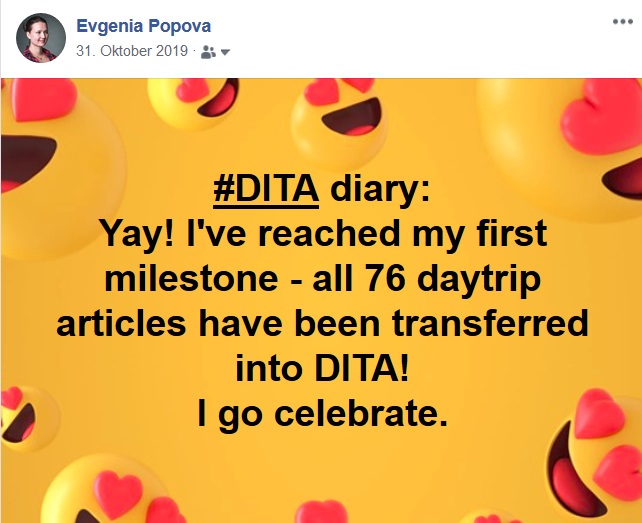In my latest master study in Content Strategy, the concept of intelligent content (read more about intelligent content here) was discussed every now and then. Though the discussion was mainly of a theoretical nature, the idea sounded very promising to me. At the same time, it seemed to be extremely effortful, especially, if you’d managed your content in a chaotic folder system on the corporate intranet or different tools like MS Word and WordPress. Transforming that content-mess into intelligent content sounded like building a spaceship to travel to another galaxy.
Intelligent content is content that’s structurally rich and semantically categorized and therefore automatically discoverable, reusable, reconfigurable, and adaptable.
Ann Rockley
Master thesis experiment
As effortful as it sounded to me, I knew I would probably never try it out, cause the amount of time I’d need to dig into the topic was just too big. But as I was to choose a challenge for my master thesis it stroke me. 500 hours project… well, why not to invest it into an experiment with intelligent content?

Problem == Why did I do it?
I have already written about a startup I’ve successfully f*cked up. So one of the reasons for that fail (that I haven’t mentioned in that article) was poor maintenance process of the content throughout its lifecycle. Simply said – too much content and too little resources. Intelligent Content promises to solve this problem as it claims to reduce content creation and maintenance costs dramatically.
So would the startup have had chances for success, if:
- its content was intelligent
- whereas the number of human resources stayed the same?
In order to answer this question, I decided on the process and the time frame.
Goal == What did I want to achieve?
The main goal was to cut content creation costs in half while maintaining the quality level.
I was also interested in a broader question: ‚Is intelligent content approach efficient for small companies, startups and solopreneurs?‘
Evaluation criteria == How did I measure results?
Evaluation criteria was agreed to be money spent on content creation. That simple.
Process == What did I do?
As the project website was huge, it was important to declare the limitations of the project. This content set was defined for the project:
- 76 pages of day trip destinations in this URL-tree https://www.urlaubster.at/oesterreich/gewaesser/*
These pages need to be processed and transferred into DITA (Darwin Information Typing Architecture). For that reason, a domain model was to be developed in the first place.
Time frame == How long did I do?
My experiment lasted for 6 months – from August 2019 till February 2020.
Experiment in progress
During this experiment, I went through some highs and lows and at all times I kept reporting my progress on my Facebook page. Below you can get a brief impression of the process and whenever you get curious about something don’t hesitate to ask me.
Status update – August’19

Status update – October’19
Currently, I am in the middle of it, having chunked and transferred into DITA 56 of 76 day trip pages.

I have already tried to generate some new articles for the blog section with content creation costs nearly €0 because of content reuse. Here one of the first articles created with content reuse approach.

Status update – November’19
I am impressed by the opportunities intelligent content opens up for businesses but I also feel like the topic of intelligent content is much deeper than I ever thought.
The more I learn, the more I realize how much I don’t know.
Albert Einstein
Status update – January’20
I am done with my experiment, but now I have to write my master thesis and evaluate the results.
Status update – March’20
I am officially done and successfully graduated my Master’s study. This was very demanding, so I will celebrate heavily and then report you how the experiment has ended.
Results and further steps
This journey was not easy but it definitely paid off. Now I can say for sure that intelligent content can save you money. In my experiment, I could cut content creation costs even more than in half. In fact, I could save 56% of costs because of content reuse.
Intelligent Content is a very deep concept which basically makes it too difficult for small businesses. However, in my experiment I did not implement it fully – instead I adopted some methods. It aimed to find a rather simple and effective solution that small businesses can easily apply.
I have already talked about my Intelligent Content experiment and how other businesses can use it at #CosCamp at FH Joanneum in March 2020. And this month I will be talking about it at OMSG virtual event, and this time I will be talking in German. So if you are curious to hear more and learn how to apply it to your business – this event is an excellent opportunity for it. It is free and takes place online. Just reserve you a place, grab a beer and let’s talk about Intelligent Content 😉 See you in Zoom.
